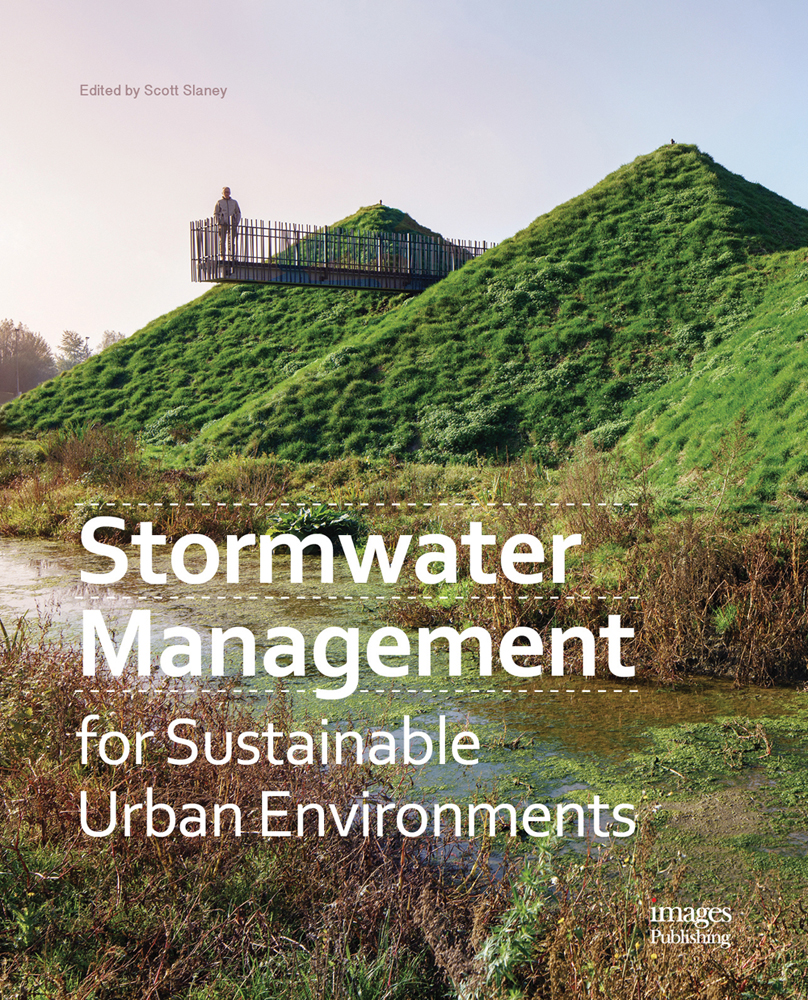How Does Architecture Incorporate Principles Of Sustainable Stormwater Management?

Nowadays, sustainable stormwater management is more crucial than ever before. Extreme weather conditions are becoming more frequent worldwide, resulting in more and more flooding in urban areas. In fact, in the United States, about 97 percent of urbanized land is impervious to water.
In this post, we will discuss the challenges related to stormwater management and the solutions to these challenges. We will also explain why it is essential to implement sustainable stormwater management practices and their benefits.
What is Sustainable Stormwater Management?
Sustainable stormwater management is the practice of managing the flow of rainwater or melted snowwater to prevent flooding and protect water quality. This practice involves the use of various techniques and technologies to manage runoff, including green infrastructure systems, low-impact development designs, and other natural systems that mimic the natural hydrology of a site.
Why is Sustainable Stormwater Management Important?
Sustainable stormwater management is vital for several reasons, including:
- Protecting Water Quality: Stormwater runoff can contain pollutants that can harm aquatic ecosystems. Proper stormwater management practices can prevent pollutants from entering the water system.
- Preventing Flooding: Effective stormwater management can help prevent flooding in urban areas, which can lead to property damage and even fatalities.
- Reducing the Urban Heat Island Effect: Sustainable stormwater management practices can help reduce the urban heat island effect, which is the phenomenon of urban areas being significantly warmer than rural areas due to human activities such as industrialization and construction.
- Improving Aesthetic and Recreational Value: Green infrastructure and low-impact design can add aesthetic and recreational value to a community, improving residents' quality of life.
Challenges of Sustainable Stormwater Management?
Despite the benefits, sustainable stormwater management has its challenges, including:
- Lack of Funding: Sustainable stormwater management practices can be costly to implement and maintain, and funding can be limited, particularly in smaller communities.
- Lack of Public Awareness: Many people are not aware of the importance of stormwater management, which makes it challenging to obtain public funding and support for projects.
- Insufficient Policies and Regulations: There are often insufficient policies and regulations in place to require developers and property owners to implement sustainable stormwater management practices.
Solutions to Sustainable Stormwater Management Challenges:
Despite the challenges in sustainable stormwater management, there are solutions to combat these challenges, including:
- Investing in Green Infrastructure: Local and federal governments can invest in green infrastructure such as green roofs or rain gardens that incorporate natural systems to treat and manage stormwater.
- Education and Outreach: Communities can invest in education and outreach programs to increase public awareness of the importance of stormwater management. These programs can also include information on how individuals can implement sustainable stormwater practices on their properties.
- Policies and Regulations: Local and federal governments can enact policies and regulations that require developers and property owners to implement sustainable stormwater management practices.
The Benefits of Sustainable Stormwater Management Practices:
There are several benefits of implementing sustainable stormwater management practices, including:
- Cost Savings: Green infrastructure and low-impact design can reduce infrastructure costs such as stormwater piping and storage facilities.
- Improved Water Quality: Effective stormwater management practices can improve the quality of the receiving water bodies, preventing aquatic life loss and habitat destruction and promoting healthy ecosystems.
- Improved Air Quality: Green infrastructure practices such as the planting of trees and urban forests can significantly improve air quality by reducing pollutants.
- Reduced Heat Island Effect: Sustainable stormwater management practices can reduce the urban heat island effect, mitigating human-caused local warming and climate change effects.
FAQ:
Q: How can I implement sustainable stormwater management practices on my property?
A: There are many ways you can implement sustainable stormwater practices, such as building rain gardens, installing permeable pavers, and planting native vegetation to soak up stormwater. Contact your local government to learn more about stormwater management practices in your area.
Q: Are green infrastructure and low-impact design practices effective in managing stormwater runoff?
A: Yes, green infrastructure and low-impact design practices are effective in managing stormwater runoff. These practices are designed to mimic natural systems and improve infiltration, reducing the amount of stormwater that enters into the traditional drainage system.
Q: Can sustainable stormwater management practices save money?
A: Yes, sustainable stormwater management practices have been found to save money. By incorporating green infrastructure and low-impact design practices into stormwater management, the need for expensive infrastructure such as stormwater piping and storage facilities can be reduced or eliminated altogether.
Q: How can I get involved in sustainable stormwater management practices in my community?
A: You can get involved in sustainable stormwater management practices in your community by attending meetings, volunteering for events, and working with local organizations. Contact your local government for more information on how you can get involved.
Conclusion:
Sustainable stormwater management practices are crucial for protecting water quality, preventing flooding, reducing the urban heat island effect, and improving the aesthetic and recreational value of communities. However, there are challenges to implementing sustainable stormwater management practices. The solutions to these challenges include investing in green infrastructure, education and outreach, and the enactment of policies and regulations. By implementing sustainable stormwater management practices, we can enjoy the several benefits of reduced air pollution, improved water quality, and even cost savings.




Post a Comment for "How Does Architecture Incorporate Principles Of Sustainable Stormwater Management?"